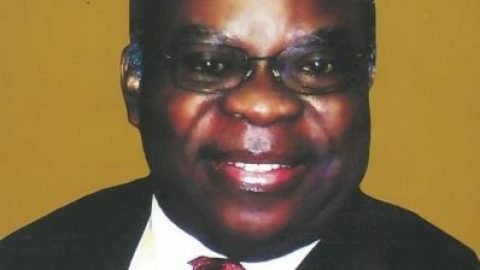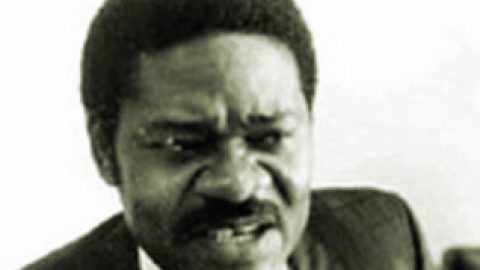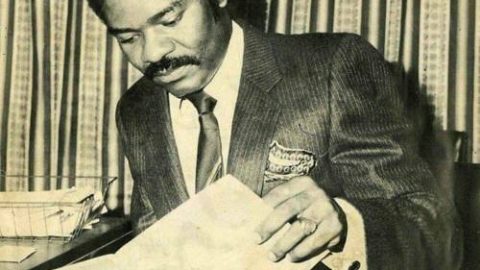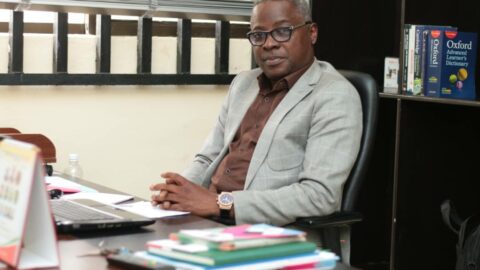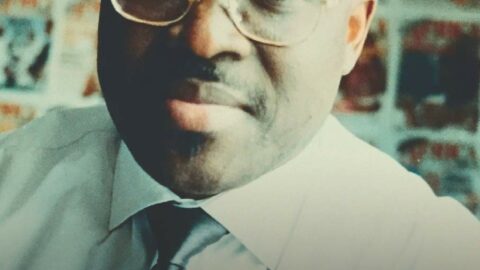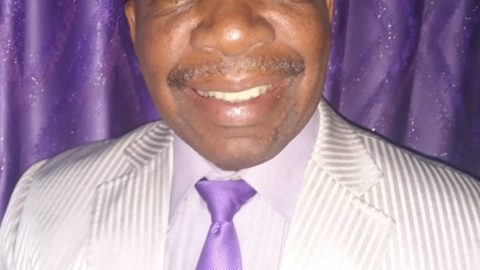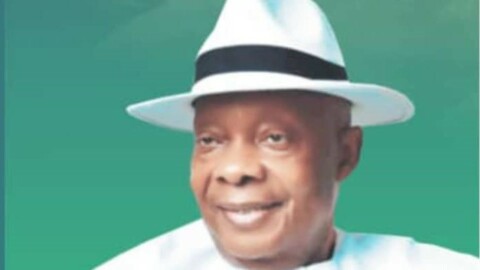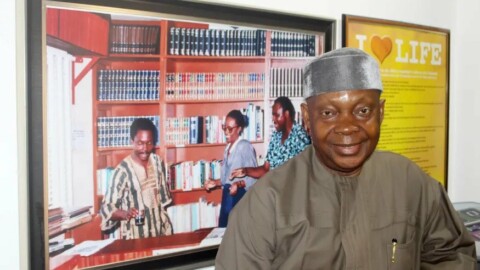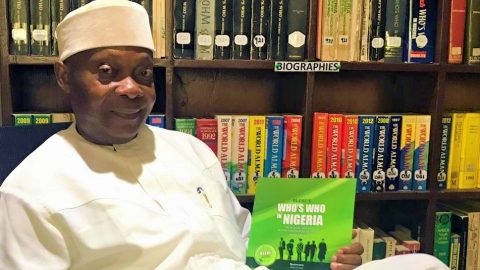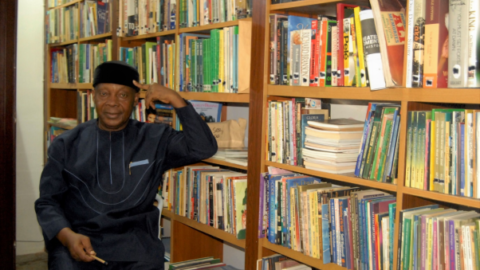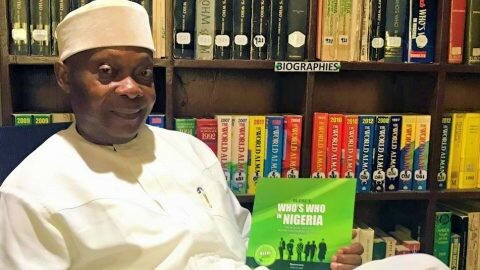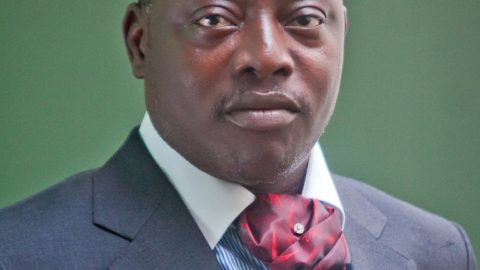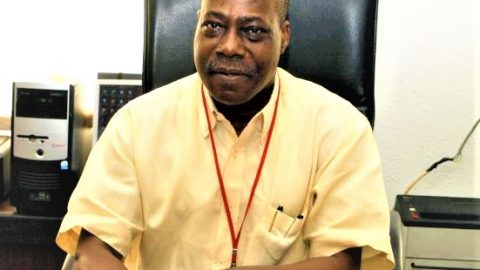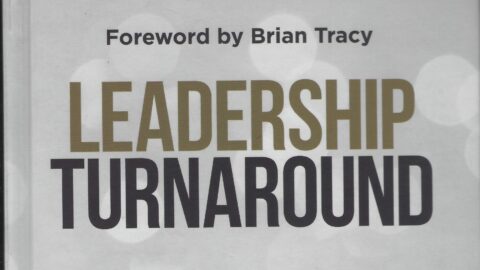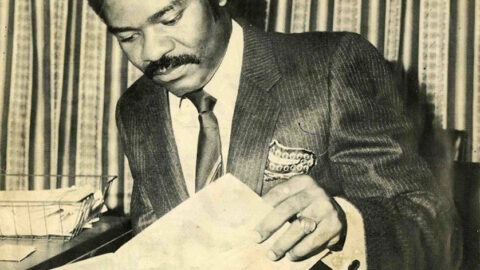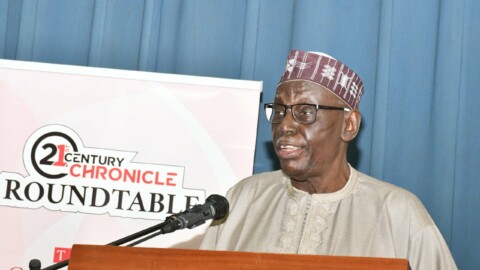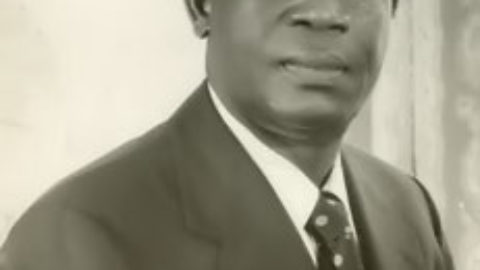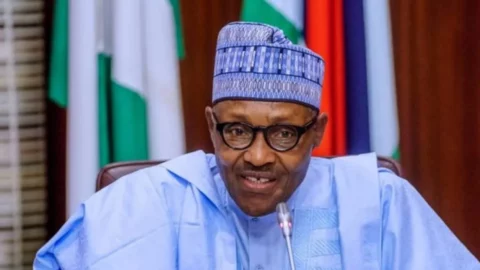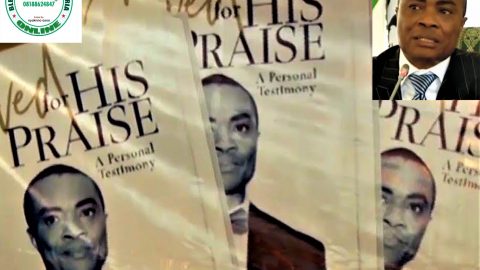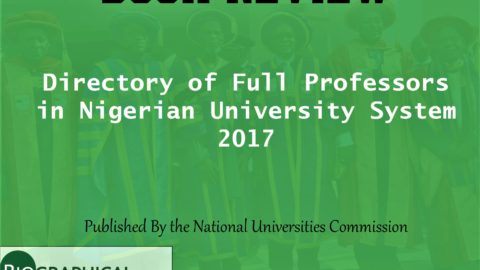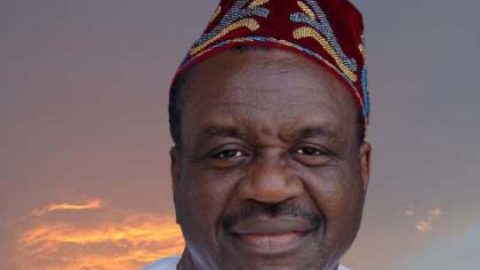May his soul rest in peace
“Having IMF monitors in the central bank assumes that we are incapable of doing of our job. That kind of proposition is not acceptable. We want to do the right thing on our own account not because the IMF or the World Bank or anybody else wants us to do it.
We all agree that Nigeria is a country blessed with a huge amount of resources. Yet, since independence and despite the resources, other countries at comparable level of development that were not as blessed with huge resources as we were have left us behind. It may be observed that the single factor, which explains our economic stagnation, is the lack of integrity and public spiritedness among our elite, many of us have been selfish and have individually done well in life. But today it is not possible for the individual who has prospered to enjoy his wealth.
His neighbors and relatives are poor. The roads on which the Rolls Royce or the V-Boots travel are non-existent or in deplorable condition. Armed robbers recruited from unemployed artisans or unemployed educated elements make nonsense of all anti-burglary security devices as the armed robbers invade in large formation. The neighbors who may be equally rich or miserably poor do not feel concerned by the robbery taking place next door. The police are not mobile to go the scene of the crime. Individual selfishness has dissolved societal bond and neighborliness”.
–Mallam Adamu Ciroma
Until lately, he was as constant as the northern star—a permanent fixture in one government after the other since Nigeria’s Independence. He has served in various capacities including the Governor of the Central Bank of Nigeria as well as the Minister of Finance under various governments for a record three times. He is highly respected in and out of government circles across Nigeria. He derives his esteem and reverence from his selfless service, modesty, integrity and honesty. Editor, administrator and politician, Mallam Adamu Ciroma is the quintessential Nigerian.
Given the easy and unaccounted-for wealth that is reportedly the side effect of public office in Nigeria; one would have expected that someone of the stature of Mallam Adamu Ciroma, who spent almost his entire adult life not just in the corridors of power, but was of considerable stature in all governments that he served including being the chancellor of the Exchequer and governor of the Central Bank of Nigeria, one would have expected him to belong in the class of the richest men in Nigeria. Not for Mallam Ciroma who believes most sincerely that a good name is to be cherished than questionable wealth.
Mallam Ciroma joined the Northern Nigeria civil service in 1961 as an administrative officer in the office of the Premier of the Northern Region, Sir Ahmadu Bello. He was one of the northern educated elite that the Saraduana surrounded himself with and carefully groomed for federal appointments. He was appointed in 1967 from the civil service as the Editor of the New Nigerian Newspapers, which was the northern establishment answer to the vociferous press of the Lagos/Ibadan axis.
He later became the Managing Editor of the newspaper group. He served with the New Nigerian Newspaper group from 1967 to 1974.
While working as the Managing Editor of the newspaper, he was appointed Director of the Central Bank of Nigeria. Following the successful coup which ousted General Yakubu Gowon, General Murtala Mohammed wielded a big broom that swept away many public officers, creating room for young and untainted hands. Mallam Adamu Ciroma was appointed as the Governor of the Central Bank ostensibly to restore probity, integrity and public confidence, to the bank that was plagued,, like most other government establishments with lack of accountability. He served as CBN Governor from September 23, 1975 to June 27, 1977.
Having held strategic offices as the Managing Director of the New Nigerian Group of Newspapers and then Governor of the Central Bank of Nigeria, he was confident he has had the necessary exposure and experience to run Nigeria. Mallam Adamu Ciroma resigned as the Governor of Central Bank to enable him position himself to contest the presidency in 1979. But first, he contested elections into the constituent assembly that was empowered to craft a new constitution for Nigeria. He represented Fika/Fune federal constituency. While at the Constituent Assembly, the National Party of Nigeria was formed and he became the Secretary. Mallam Adamu Ciroma, Dr. Olusola Saraki and Alhaji Maitama Sule, were the leading contenders for the presidential ticket of the party, before the party hierarchy gave the ticket to Alhaji Shehu Shagari who had showed interest in contesting a senate seat. Indeed, Mallam Adamu Ciroma was the man to beat. The office of the CBN governor made him very visible and he performed creditably well too, so much so that close observers of the political scene felt Adamu Ciroma was better qualified to take on the mantle of leadership.
The National Party of Nigeria, of which he was a foundation member, won the 1979 elections. Mallam Adamu Ciroma was appointed Minister of Industries. Two years later, following a minor cabinet reshuffle, he was appointed Minister of Agriculture. The NPN won again in 1983 and Mallam Adamu Ciroma was appointed Minister of Finance; a position which he held for only three months following the sacking of the Government by mutinous soldiers on December 31, 1983.
Because of alleged massive corruption, politicians were hauled into jail. While not denying that some politicians of the second republic were immensely corrupt, he was pained that even intellectuals made a blanket condemnation of all politicians. Said he: “Even though politicians were herded into detention, their assets minutely investigated and none of the expected huge sums stashed by them were in fact found, nevertheless, Nigerians still refuse to believe the facts and figures. At that time, army officers in charge of NYSC (National Youth Service Corps) were discovered to have millions in their bank accounts. Some of their stolen money was hidden in their children’s accounts. But no, the Second Republic politicians must not be treated in the light of revelations. President Shagari was the victim of ambitious Armed Forces officers who mastered the art of propaganda and used it viciously to tarnish his image and in a larger sense the image of all politicians.”
Like all politicians, Adamu Ciroma recoiled to his shell and took to farming. It was in retirement that the maximum ruler, General Sani Abacha appointed Ciroma again as Minister of Agriculture. This move by Abacha was apparently to win Northern conservative elements support for his government. But Ciroma did not serve for long. He disagreed with the lord in Aso Rock, prompting his resignation from office after a year. He joined the eminent politicians group; christened G-34 the group looked Abacha in the face and agitated continuous military rule.
The Abacha puzzle was solved biologically with “divine intervention”, as it were, and Abdulsalam Abubakar came along as the new Head of State. Political parties were formed in earnest and once again, Mallam Adamu Ciroma’s party won at the center in 1999. He was again appointed Minister of Finance. Perhaps Mallam Ciroma may still have been in government occupying his position as Minister of Finance but for the unfortunate auto crash of 2000 that left him confined to a wheel chair for a long period. To underscore his importance to the government, he was retained in spite of his condition for quite a while. This prompted one activist to make the pejorative comparison that “the Naira is in crutches because the Minister of Finance is in crutches”, as the national currency was not doing well at the time.
Although a northern conservative, he was known to hold moderate views, at least towards the end of his career. To the chagrin of ultra northern conservatives, he would neither openly support the Sharia legal system that was creating tensions in various parts of Northern Nigeria nor create the enabling environment for the setting up of an Islamic Bank in Nigeria.
Ciroma was born in Potiskum in today’s Yobe State in 1934. He was educated at the University College in Ibadan where he studied History and graduated in 1961. He had further education at the Cite Universitaire Besancon, France, between 1962 and 1963. He has been widely honored both within and outside of Nigeria. He was honored with Grand Commander of the Order of the Federal Republic (GCFR) in 2003.
***Culled from: THE NIGERIAN 100: The Most Influential Nigerians of all Times, edited by Prosper Ufuoma Ahworegba, Yaba, Integrity Press, 2008 (pp142-146).


